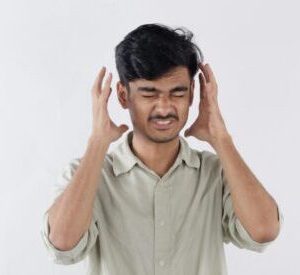Concussion
Football season is back in full swing and with all the physicality that comes with it, it’s a great time to discuss one of the most notorious injuries associated with contact sports – concussion.
What is a concussion?
A concussion is a mild brain injury that results in a temporary, sudden change or disturbance in brain activity and function after an impact to the head or body. They are a type of traumatic head injury and are one of the most common injuries that people experience
What are the causes of a concussion?
Concussions are mostly caused by an impact to the head by another player, an object, or the ground, but a strong impact to the body could also cause a concussion by causing head and neck movement.
People who have had a concussion before are more likely to have one again.
What are the symptoms of a concussion?
Anyone who experiences a concussion may develop the following symptoms:
- Headache
- Vomiting or nausea
- Confusion or difficulty concentrating
- Blurred vision or dizziness
- Impaired balance
- Sensitivity to light or noise
- Mood changes or irritability
- Excessive fatigue
- Insomnia
If you observe someone who has sustained a head injury, be on the lookout for other symptoms like:
- Temporary loss of consciousness
- Slurred speech
- Delayed responsiveness
- Dazed appearance
- Forgetfulness or repetitive speech (such as asking the same questions over and over)
While some symptoms of a concussion could occur right away, others may not show up until a few days after the initial injury.
How is a concussion diagnosed?
A concussion is typically diagnosed based on the history of the injury, previous and current symptoms, and a physical exam by a certified medical professional. The physical exam will test a few areas, including memory, cognition, eye movements, and balance.
Tests, like an Impact test on a computer, and balance tests, can be helpful to fully evaluate a patient for a concussion, but are not necessary.
How is a concussion treated?
Initial treatment for a concussion involves removing the person from activity to prevent further injury. The player should rest from sports and activities until evaluated by a medical professional.
After that, a gradual return to sport is started in multiple steps. These basic steps include:
- Light aerobic activity (stationary bike, walking),
- Moderate aerobic activity (running, running routes, skating, and changing directions) and low intensity resistance training
- Noncontact sport-specific training (practice) and drills; more intense resistance training
- Full-contact practice and drills
- Return to a game/competition
Managing a concussion
If you have recently sustained a concussion, some daily activities may cause you trouble. To help your recovery you should listen to your body and avoid any situations that make your symptoms worse. Some things you can do to best manage your concussion are:
- Limit your screen time, which includes phones, tablets, computers, TVs.
- Stay well hydrated, continue to eat three main meals per day
- Get eight or more hours of sleep
- Avoid loud or crowded environments.
Concussion symptoms usually get better with time. Limiting stressors on your brain and giving it the proper time to recover are the best things you can do to try and limit your symptoms.
When should you see a doctor about a head injury?
You should see a healthcare professional if your symptoms last more than one day, if you were not allowed to participate in or were removed from an activity, practice, or game, or if you have questions and want to return to sport/activity after a head injury.
If you have sustained a recent blow to the head and feel you may have a concussion, visit one of our providers and start your path back to a clear mind.

